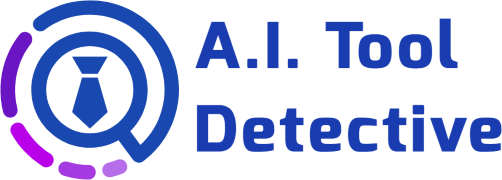Introduction
WordPress is undoubtedly one of the most popular platforms for website development, trusted by millions of users worldwide. However, its immense popularity also attracts unscrupulous individuals who seek to exploit vulnerabilities for malicious purposes. The growing threats and risks associated with WordPress websites make it more important than ever for website owners to prioritize security measures to prevent their websites from getting hacked.
In this article, we will explore the various factors contributing to the vulnerability of WordPress websites and provide practical and actionable steps that website owners can take to enhance their security. By implementing these measures, website owners can significantly reduce the risk of security breaches and the potential consequences they entail.
I. The Growing Threats and Risks Associated with WordPress Websites
1.1. The Vulnerability of Popular Platforms
As the leading content management system (CMS), WordPress is a prime target for hackers. Its open-source nature offers a wealth of opportunities for attackers to locate vulnerabilities and exploit them for their benefit.
1.2. The Potential Consequences of a Security Breach
A security breach on your WordPress website can result in severe consequences, including:
a) Data Theft and Privacy Violation: Hackers can steal sensitive user information, such as login credentials, personal details, and financial data, potentially leading to identity theft and financial loss for users.
b) Damage to Reputation and Business: A hacked website can damage your reputation and cause a loss of trust among users, customers, and partners. This can have lasting negative effects on your brand and revenue stream.
c) SEO and Ranking Penalties: Google and other search engines penalize websites that have been compromised, resulting in a drop in search rankings and reduced organic traffic.
II. Practical and Actionable Steps to Enhance WordPress Security
2.1. Strong Password Creation
A strong password is the foundation of your WordPress website’s security. Utilize the following tips to create robust passwords:
a) Length and Complexity: Ensure that your passwords are at least 12 characters long and include a combination of uppercase and lowercase letters, numbers, and special characters.
b) Unique Passwords: Use different passwords for each online account to prevent a single security breach from compromising all your accounts.
2.2. Regular Updates for WordPress Core, Themes, and Plugins
Keeping your WordPress installation, themes, and plugins up to date is vital in mitigating security risks. Updates often include security patches that address any vulnerabilities discovered in previous versions. Enable automatic updates where possible to streamline the process.
2.3. Responsible Plugin Management
Plugins enhance the functionality of WordPress websites, but they can also introduce vulnerabilities. Apply the following practices to minimize the risks associated with plugins:
a) Review and Research: Before installing a plugin, conduct thorough research to ensure it is reputable, frequently updated, and well-reviewed by users.
b) Limited Use of Plugins: Keep your plugin count minimal, as removing unwanted or outdated plugins reduces potential attack vectors.
2.4. User Access Control
Limiting user access to your WordPress website can minimize the risk of unauthorized access. Consider implementing these steps:
a) User Roles and Permissions: Assign appropriate roles and permissions to users, ensuring that they only have access to the necessary features and functionality required for their roles.
b) Two-Factor Authentication: Enable two-factor authentication for added login security. This ensures an additional layer of protection by requiring a unique code sent to a user’s registered device.
III. Additional Security Measures for WordPress Websites
3.1. Regular Backups
Regular backups are crucial in safeguarding your website and data against irreversible loss. Choose a reliable backup solution and establish a consistent backup schedule that includes all website essentials, such as files, database, and media.
3.2. Security Plugins
a) Firewall: Install a robust WordPress firewall plugin to monitor and filter incoming traffic, blocking suspicious IP addresses and known malicious entities.
b) Malware Scanning: Deploy a malware scanning plugin that regularly analyzes your website for any known malware or suspicious files.
c) Login Protection: Utilize a login protection plugin to monitor login attempts, enabling features such as limiting failed login attempts and blocking brute-force attacks.
3.3. Secure Hosting Options
a) Managed WordPress Hosting: Opt for managed WordPress hosting that includes security measures such as malware scanning, automatic backups, and frequent software updates.
b) SSL Certification: Add an SSL certificate to your website to ensure secure communication between your server and visitors’ browsers, protecting sensitive data transmitted through your website.
Conclusion: The Key to Secure WordPress Websites Lies in Ongoing Vigilance and Education
Protecting your WordPress website from hackers and security breaches requires ongoing vigilance and education. By implementing the steps outlined in this article – creating strong passwords, regular updates, responsible plugin management, user access control, backup strategies, and utilizing security plugins and secure hosting options – website owners can significantly reduce the potential risks associated with WordPress websites.
Remember, maintaining a secure WordPress website is an ongoing process. Stay up to date with the latest security best practices, educate yourself and your team, and make security a priority. By doing so, you can ensure the long-term integrity, trustworthiness, and success of your WordPress website.











